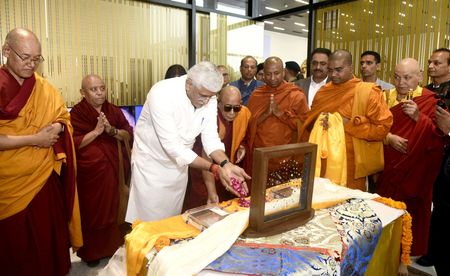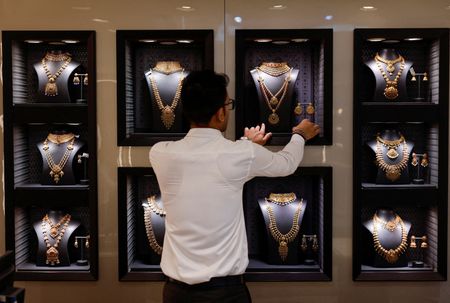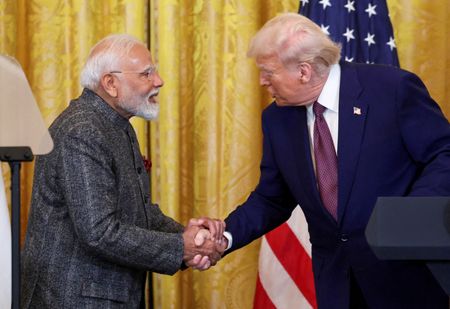HONG KONG (Reuters) -A collection of hundreds of jewels linked to Buddha’s remains has returned to India after 127 years following an auction planned for earlier this year that drew threats of legal action from the government in Delhi.
Indian Prime Minister Narendra Modi hailed the return of the collection, known as the Piprahwa Gems of the Historical Buddha.
“A joyous day for our cultural heritage!” Modi wrote in a post on X on Wednesday. “It would make every Indian proud.”
The collection of more than 300 gems including amethyst, topaz and pearls dates from the Mauryan Empire, Ashokan Era, around 240-200 BCE.
The collection, first unearthed by a Briton in northern India, was originally scheduled to be auctioned by Sotheby’s in Hong Kong in May but the sale was postponed after India’s government threatened legal action and demanded the jewels be returned.
Sotheby’s subsequently identified Indian conglomerate Godrej Industries Group as the buyer and secured a sale that saw the permanent return of the gems to India, where they would be placed on public display.
“Sotheby’s is delighted to have facilitated the return of the Piprahwa Gems to India,” the auction house said in a statement late on Wednesday.
India’s Ministry of Culture said it was an exemplary public-private partnership and the initiative aligned with Modi’s broader mission to reclaim and celebrate India’s ancient cultural and spiritual heritage from across the world.
The gems were unearthed in 1898 from an ancient stupa in Piprahwa, northern India, by English estate manager William Claxton Peppe, along with fragments of bone thought to belong to Buddha. Peppe was later allowed to keep more than 300 duplicate gems, which remained in his family.
(Reporting by Clare JimEditing by Kate Mayberry, Lincoln Feast and Frances Kerry)









